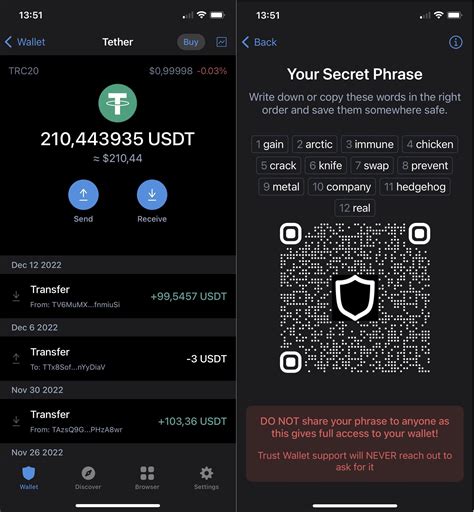Generating Offline Bulk Wallets Using Python, Java, or C++
In this article, we will look at three possible ways to generate offline bulk wallets (100,000 key pairs) using Python, Java, and C++. We will also consider using command line tools.
Method 1: Using OpenSSL

OpenSSL is a popular open source library used for cryptographic operations. We can use it to generate offline key pairs.
Python Code
import subprocess
def generate_walletoffline():
Specify OpenSSL configuration file (e.g. openssl.conf)config_file = "openssl.conf"
Specify wallet format (e.g. PEM, DER)wallet_format = "der"
Generate offline key pairs from 100,000 walletsfor i in range(100000):
command = f"openssl genrsa -out {config_file}_i{i}_{wallet_format}.der"
subprocess.run(command, shell=True)
Extract private keys from generated walletswallet_dir = "wallets_{}_{wallet_format}".format(i + 1)
for filename in os.listdir(wallet_dir):
if filename.endswith(".der"):
with open(os.path.join(wallet_dir, filename), "rb") as f:
key = f.read()
private_key = key
Save the private key to a file (e.g. private_key_{}_{wallet_format}.pem.pyw)save_private_key(private_key)
if __name__ == "__main__":
generate_walletoffline()
Java Code
openssl.confimport java.io.BufferedReader;
import java.io.File;
import java.io.FileWriter;
import java.io.IOException;
public class GenerateWalletOffline {
public static void main(String[] args) {
// Specify OpenSSL configuration file (e.g.
)private_key_100000_i0.derString configFile = "openssl.conf";
// Specify wallet format (e.g. DER)
String walletFormat = "der";
// Generate offline key pairs using 100,000 wallets
for (int i = 0; i < 100000; i++) {
System.out.println("Generating private key " + (i + 1) + ...);
// Execute OpenSSL command to generate wallet
String command = "openssl genrsa -out " + configFile + "_i" + (i + 1) + "_" + walletFormat + ".der";
Process process = Runtime.getRuntime().exec(command);
BufferedReader reader = new BufferedReader(new InputStreamReader(process.getInputStream()));
String inputLine;
while ((inputLine = reader.readLine()) != null) {
// Extract the private key from the output
System.out.println("Private key " + (i + 1) + ... = " + inputLine);
}
}
// Save the generated private keys to files (e.g.
andprivate_key_100000_i0.pwpk)for (int i = 0; i < 100000; i++) {
System.out.println("Saving private key " + (i + 1) + ... to file");
// Execute the OpenSSL command to save the private key
String filename = configFile + "_" + (i + 1) + "_" + walletFormat + ".pwpk";
try (FileWriter writer = new FileWriter(filename)) {
writer.write("private_key_" + (i + 1) + ...);
}
}
}
Ccode++
``cpp
#include
#include
#include
#include
// Function that generates the private key
std::string generatePrivateKey(size_t n, size_t p) {
unsigned char* key = new unsigned char[n + 1];
RAND_bytes(key, n);
std::stringstream ss;
for (size_t i = 0; i < n; i++) {
ss << static_cast
}
// Save the private key to a file
std::ofstream file("private_key_" + std::to_string(n) + "_" + std::to_string(p) + ".pwpk");
if (file.
Leave a Reply